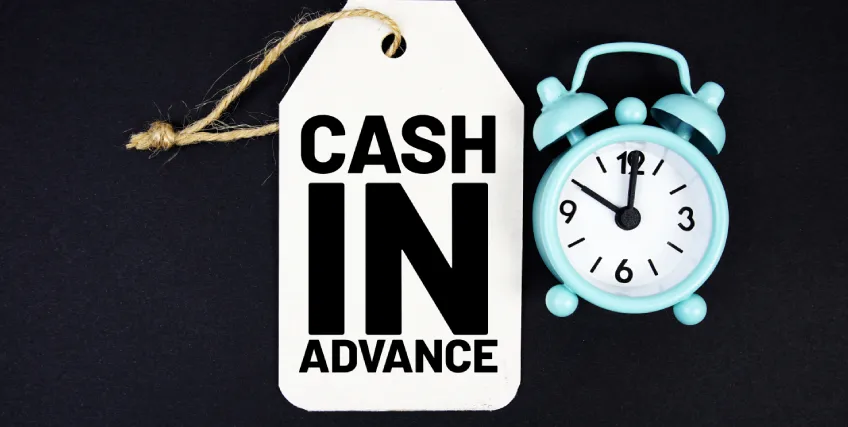How to Decide Which Merchant Loan Company to Use
April 14, 2025 | Last Updated on: April 14, 2025

In this article:
- What is a merchant loan company?
- How to find the best merchant loan company
- Advantages and disadvantages of using a merchant loan
- Other small business financing options to consider
Small business owners use merchant financing to cover operating expenses or make necessary purchases when they don’t have enough cash flow to cover business needs. This type of financing is popular with business owners that have revenue cycles dependent on seasons, are in the process of implementing growth strategies, or where income is collected via future credit card sales or debit card sales. In this article, we explore financing options through merchant financing and provide tips on choosing the best merchant loan company for your business needs.
What is a Merchant Loan Company?
Merchant financing programs, like merchant cash advances (MCAs), are a type of business financing in which the business owner receives a lump sum of money upfront, and the merchant loan company is repaid by collecting a predetermined percentage of daily credit card payments from the business. A merchant cash advance is different from a traditional loan. Rather, they are commercial agreements that do not have fixed repayment terms since the payments are based on future sales.
How a merchant cash advance works
A financing agreement occurs between a merchant loan company and an entrepreneur. Merchant cash advances are often offered through alternative lenders, online lenders, or companies that provide merchant cash advances. The process works similarly to other types of small business loan options and begins with an application.
- Application process: Any small business owner can apply for a merchant cash advance. The amount of money the company will provide upfront depends on the business’s sales history, industry, and business plan.
- Funding: Once the application is completed, approved entrepreneurs can expect to receive funds in their business bank account from the merchant account within 24 to 72 hours. Sometimes, you can even get funding the same day you apply.
- Repayment agreement: Merchant cash advance companies that approve financing will then set up a process for collecting their percentage of the business’s credit card transactions. The arrangement usually includes daily or weekly withdrawals. The amount of time it requires to pay off an MCA depends on the advance amount, the frequency of installments, and the provider’s fees.
How to qualify for a merchant cash advance
While credit score is not a primary factor considered for approval, some merchant cash advance companies will weigh good credit for new business owners or other borrowers who have a limited sales history. However, since these financing arrangements are not like traditional bank loans, the eligibility requirements are simple. An interested business owner must typically provide the following documents to the lender:
- Credit card processing statements
- Identification, like a driver’s license or passport
- Voided business check
- Bank statements
- Federal income tax returns
How much does an MCA cost?
Even the best merchant cash advances are a more expensive financing option than small business loans or other business funding sources. The financing costs of an MCA are calculated using factor rates. The factor rate provides a decimal value multiplied by the amount of funding provided to the business to determine the total cost of the agreement. For example, if a business owner borrows $5,000 from a merchant loan company with a factor rate of 1.12, the business must repay $5,600 to the provider.
How to find the best merchant loan company
If a business merchant cash advance sounds like the right decision for you, you may be wondering how to get started.
Tips for comparing loan companies
When selecting a merchant loan company to work with, do your research ahead of time to ensure the company has a reputation for providing fair service to its customers. Your best bet is a provider that has a history of being transparent about the repayment period and cost of the agreement.
- Do an online search: A simple internet search is a great way to get an overview of different merchant cash advance companies. Ultimately, you want to do business with a company with a significant online presence and whose website has been registered for at least 6 months. Several websites regularly review financial services to help you find the best merchant cash advance. For instance, when searching “best merchant loans,” you may find this article by Funding Hero that names Biz2Credit as the 2022 Editor’s Choice for merchant cash advances.
- Check with the Better Business Bureau: Once you’ve narrowed your search, you can gain additional reassurance by checking the Better Business Bureau’s (BBB) website. The site ranks businesses by assigning a grade to each company. The grading scale ranges from A+ to F, with ratings of A-C being considered good businesses to work with. In addition to the grade, the website lists reasons for the rating and provides customer reviews for most businesses.
- Trust your instincts: Don’t be afraid to contact merchant cash advance companies. Speaking with a representative from the lender can indicate whether they provide transparency and good customer service. Did the lender return your email or call promptly? Was the lender upfront about their factor rates and origination fees? Was the representative able to answer all your questions?
Advantages and disadvantages of using a merchant cash advance
Deciding to take out a merchant cash advance is a big decision. Before you decide to sign any financing agreements, be sure you have considered the pros and cons of MCAs.
Pros of merchant cash advances
- Fast funding: Merchant cash advances are one of the fastest types of business financing on the market. Typically, borrowers can receive their lump sum upfront payment in 1-3 business days, weeks faster than other types of loans, like SBA loans.
- Fewer documents: When working with banks or credit unions on long-term financing and loan options, borrowers often find themselves buried in document requests. MCAs require less paperwork than traditional loans because the credit decision depends mainly on the sales records of the applying business.
- Bad credit is okay: Merchant loan companies are repaid directly from the company’s credit card sales. Any type of business, especially retail and restaurant locations, can accept credit cards and debit cards by partnering with a credit card processing company. For these reasons, small business owners with bad credit can still qualify for the best merchant loans if their sales histories are satisfactory.
- Payments fluctuate with business: Since repayment is based on a percentage of card sales, the required debt payments on the advance are lower when business is slow. When business is going well again and monthly revenues have increased, the higher payments will help you repay the loan faster. Some MCA agreements are set up to deduct periodic, fixed ACH payments from the business. In those instances, borrowers can request reduced payments when business receipts are less than expected.
The cons of merchant cash advances
- Financing costs: MCAs can get expensive for small business owners and startup Since the arrangement is not an actual loan, there is no set repayment schedule. It’s challenging to compare factor rates to interest rates and annual percentage rates, but typically, the factor rate results in much higher total financing costs than loan options or business credit cards.
- Payments based on sales: While it benefits borrowers to have reduced payments when sales are low, the flip side of percentage-based payments means that the payment increases when sales are great. Since many business owners depend on busy seasons to reinvest in their businesses, the higher payments can be a disadvantage when budgeting for marketing expenses or large purchases and repairs.
- No prepayment benefits: Since MCA borrowers agree to repay the merchant loan company with a fixed amount as a percentage of sales, there are no cost savings for borrowers that repay the debt early. While some traditional loan agreements include a prepayment penalty, they typically offer savings by requiring less interest when repaid early.
- Complicated contracts: The eligibility and document requirements are simpler than other funding options, but MCA contracts can still be complicated for small business owners. Since repayment is typically structured as a percentage of the business’s future receivables over a set time period and a fixed repayment amount over that period, it can be challenging to understand what is required of borrowers. Therefore, it’s essential to work with a merchant loan company you trust when taking out an MCA.
Other small business financing options to consider
If you are concerned about the financing costs of a business merchant cash advance, you may be interested in learning about other financing options for small businesses. Each of the following types of loans can be secured through a traditional bank or online lenders.
Line of credit
A business line of credit is a type of revolving credit that works like a business credit card, where the borrower is approved for a maximum credit line. The business owner can then withdraw funds at any time credit is available. When the credit line is paid down, the funds become available again. If you have a low credit score, you can still secure a line of credit, but you may have to pledge an asset, like commercial real estate, as collateral or provide a personal guarantee. Although, borrowers with lower credit scores tend to pay higher interest rates.
SBA loan
SBA loan programs are financing options for small business owners in which the U.S. Small Business Administration backs a portion of the borrowed amount. SBA loans offer lower interest rates and require smaller down payments than MCA providers and traditional bank loans, and eligibility is based on several factors, including loan amount, credit score, and time in business. The SBA offers several different loan programs, including the SBA 7(a) loan, SBA Microloans, and SBA Express loans. SBA loans are available through both alternative lenders, and traditional financial institutions, like national banks.
Short-term loans
Term loans are a traditional type of loan where an approved borrower receives a lump sum payment upfront and repays the debt with monthly principal and interest payments. Term loans with repayment terms of less than 36 months are considered short-term and approved based on the borrower’s creditworthiness. Short-term loans are best for entrepreneurs who purchase inventory or cover working capital shortages. Long-term loans are an option for small business owners looking to make a large purchase, like equipment or real estate, who would benefit from an extended amount of time to repay the loan.
Bottom Line
Merchant cash advances can be a great financing tool for small business owners, like this digital solution developer, who was able to get a cash advance of $40,000 working with the right financing company. They differ from traditional loans because there are no fixed repayment terms, and financing costs are calculated using a factor rate instead of interest rates. Merchant cash advances work well for borrowers with bad credit scores who need funding fast, but the financing costs for MCAs can be higher than other loan options. Even if a cash advance is not for you, check out other loan options from Biz2Credit, such as a term loan or business line of credit.
FAQs
What is a merchant loan company?
A merchant loan company is an organization that offers merchant financing programs, like merchant cash advances. These companies enter into commercial agreements with small businesses to offer upfront cash in exchange for a percentage of future sales.
What is a merchant cash advance (MCA)?
An MCA is a type of funding arrangement in which a company provides a small business with an upfront amount of cash in exchange for a percentage of future credit card sales or debit card sales. The business pays back this funding based on a factor rate, which determines the amount a business must repay based on revenues in a specific time period.
Who should use a merchant loan?
Merchant financing programs like MCAs tend to be more expensive in the long run than traditional loans. However, they often offer fast funding and allow you to avoid fixed repayments when business is slow. As such, they’re often used by companies that experience seasonal dips or ones that need consistent working capital while going through growth periods.
How do you find a merchant loan company?
Start by doing an online search. The most reputable merchant loan companies will have an online presence through which you can learn more about companies and their programs. Always check their reviews on sites like BBB.org or Trustpilot and take the time to vet a company by asking questions for your specific situation. Never sign anything unless you’re 100% comfortable with the agreement.
What are some alternative financing solutions to MCAs?
If you’re not sure an MCA is right for you, some other forms of financing to consider include a business line of credit, traditional loans, working capital loans, or SBA loans.




